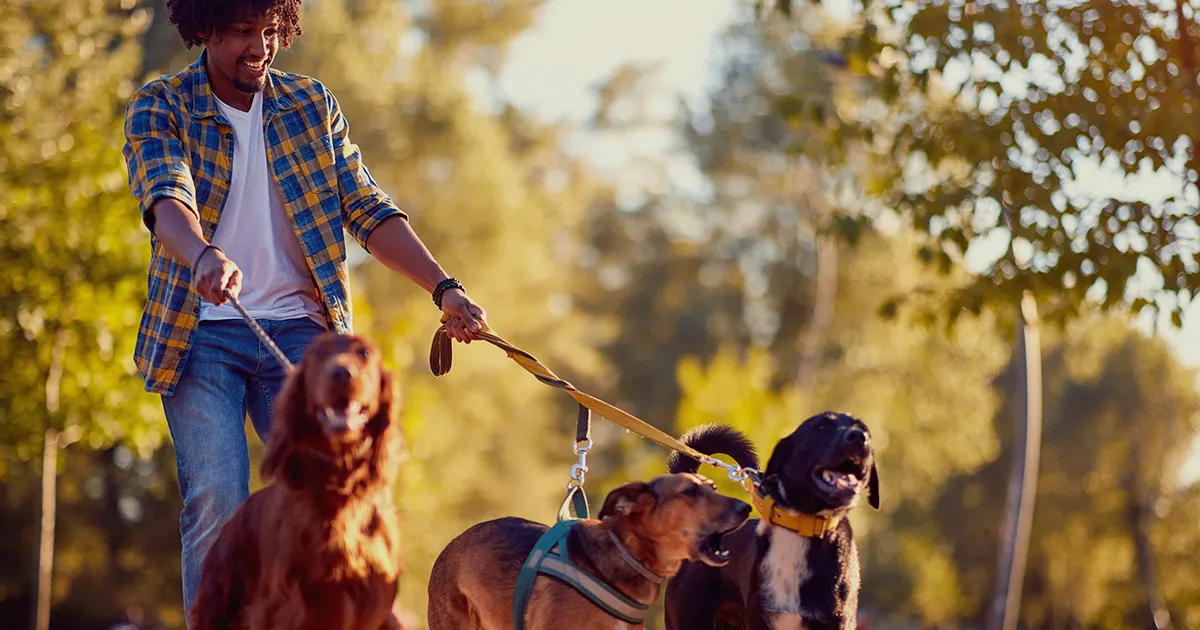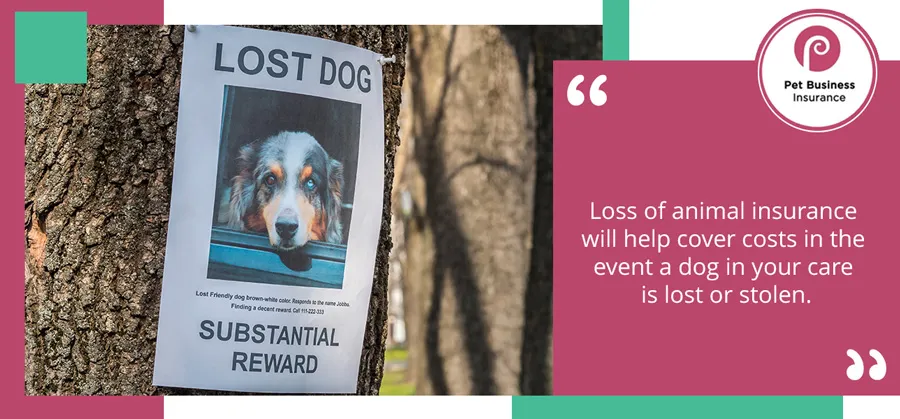Embarking on a career as a dog walker is an exciting prospect for any animal lover, especially in the UK where the demand for reliable pet care services is soaring. If you’re passionate about canines and seeking a flexible, profitable venture, a dog walking business presents a fantastic opportunity. With a relatively low barrier to entry and consistent demand, it’s a business model that can offer both personal fulfilment and financial independence.
Why Launch a Dog Walking Business in the UK?
The UK pet industry is booming, with owners investing significantly in their furry companions. Post-pandemic, pet ownership has surged, and as life returns to normal with many people heading back to offices, the need for daily dog walking services has never been higher. Furthermore, during holiday seasons, owners often seek trusted professionals to care for their dogs, creating consistent demand throughout the year. For those who genuinely adore dogs, this is more than just a job; it’s a chance to build a career around their passion.
 A man in a hi-vis jacket walking a pack of dogs in a park
A man in a hi-vis jacket walking a pack of dogs in a park
Thorough Market Research is Key
Before you even tie up your walking boots, understanding your local market is crucial for success. Identify the specific dog walking services that are most sought after in your area. Scour the internet to research your competitors, noting their services, pricing, and any gaps in their offerings.
Consider these questions during your market analysis:
- Which neighbourhoods are most densely populated with dog owners?
- What are the typical hourly rates charged by dog walkers in your vicinity?
- Is there a high demand for group walks, or are solo walks more popular?
- What local facilities, such as parks and green spaces, are available for dog walking?
An invaluable strategy is to connect with existing dog walkers in your community. Most are happy to share their insights and experiences, providing you with actionable advice and helping you avoid common pitfalls.
Calculating Your Startup Costs
One of the major advantages of starting a dog walking business is its affordability. The primary expenses you’ll encounter are related to insurance, business registration, and marketing. While marketing can be a significant portion, numerous cost-effective strategies exist to attract clients.
Essential Dog Walking Insurance
Securing appropriate insurance is non-negotiable. At a minimum, your policy should include:
- Public Liability Insurance: This covers you if your business activities cause injury to a third party or damage their property.
- Animal Accident and Injury Insurance: This protects the dogs in your care should they sustain any injuries or suffer accidents.
- Loss of Animal Cover: This provides financial assistance if a dog in your charge is lost or stolen.
Depending on your operations, you might also need to consider insurance for loss of client keys or theft of business equipment. If you plan to employ anyone, even on a voluntary basis, Employer’s Liability Insurance becomes a requirement. Expect to budget approximately £80 to £150 annually for comprehensive dog walking insurance. Consulting with a specialized pet business insurer is highly recommended to ensure you have the right coverage.
 A 'lost dog' poster offering a reward, pinned to a tree
A 'lost dog' poster offering a reward, pinned to a tree
Criminal Background Check
While not always legally mandated, a criminal background check, such as a Disclosure and Barring Service (DBS) check in the UK, is crucial for building trust with potential clients. It reassures owners that their beloved pets are in safe hands. A standard DBS check typically costs around £18 and can be applied for online.
Effective Marketing Strategies
Establishing a strong online presence is vital for reaching your target audience. This includes:
- Creating a professional website.
- Optimizing your website for search engines.
- Utilizing paid advertising campaigns.
- Maintaining an active blog with informative content.
- Listing your business on professional dog walking directories.
- Engaging on social media platforms like Facebook, Instagram, and X (formerly Twitter).
- Participating in local Facebook groups where small businesses can advertise.
Distributing flyers and business cards can also be an effective way to connect with local dog owners. For larger-scale promotion, consider branded vehicle livery if you use a van for your business. Online directories like Yelp, coupled with positive customer reviews, can significantly boost your credibility and attract more clients.
Necessary Equipment
While the equipment list is relatively short, a suitable vehicle for transporting multiple dogs might be necessary. You’ll also need a system for managing bookings and payments. Investing in user-friendly software can streamline these administrative tasks.
Essential items include comfortable walking shoes, spare leads and collars, high-value dog treats, plenty of poo bags, and appropriate all-weather outdoor gear. Consider carrying water and bowls in your vehicle, along with old towels for drying off dogs. Personalized dog walking attire, such as branded jackets or hats, can enhance your professional image. Expect to spend around £30-£35 for quality branded apparel.
Developing Your Skills and Experience
Formal qualifications aren’t a prerequisite for becoming a dog walker. However, practical experience in handling dogs is paramount for your safety and the well-being of the dogs in your care. Dogs vary significantly in temperament and size, so understanding canine behaviour and management techniques, especially when walking multiple dogs, is essential.
Initially, you might offer your services for free to build your practical experience and gather testimonials. Complementing this with courses in canine behaviour and pet first aid will not only enhance your expertise but also provide clients with greater confidence in your abilities. Many reputable organizations offer certified courses in dog walking and pet care.
 A woman training a dog with a dog treat
A woman training a dog with a dog treat
Business Registration
In the UK, you’ll need to register your business with HMRC. You can choose to operate as a sole trader, where you are personally liable for business debts, or as a limited company, which offers protection by separating your personal assets from business liabilities. If you’re unsure about the best structure for your venture, the official UK government website provides comprehensive guidance.
Understanding Rules and Regulations
Compliance with UK government regulations is vital for a dog walking business. Familiarise yourself with all applicable rules to avoid potential penalties or the cancellation of your operating license. Organizations like the National Association of Pet Sitters and Dog Walkers (NarpsUK) offer valuable guidance on these regulations, including:
- The importance of pre-booking meetings with dog owners.
- Restrictions on the number of dogs you can walk simultaneously.
- Accurate record-keeping of all services provided.
- Protecting client personal data.
- Ensuring dogs wear appropriate identification tags.
- The legal requirement to clean up dog waste.
Obtaining an Animal Boarding License
If you intend to offer overnight accommodation for dogs in your home, you will need an animal boarding license. Alternatively, if you plan to care for pets at their owners’ premises, pet sitting insurance is essential. The cost for licensing can vary, but typically falls around £300. For those looking to expand their services into canine accommodation significantly, establishing a dedicated dog kennel business is an option to consider.
 A Basenji dog lying on a wicker rug, looking over its shoulder
A Basenji dog lying on a wicker rug, looking over its shoulder
Setting Your Pricing Structure
Dog walkers in the UK typically charge between £10 to £20 per hour. Your rates will be influenced by factors such as your location, the number of dogs you can handle concurrently, and the total hours you plan to work. Researching competitor pricing and understanding the local demand will help you establish a competitive and profitable fee structure.
Reliable Transportation Solutions
Depending on the service area you cover, reliable transportation is a must. If you plan to use your car for transporting dogs, ensure your insurance policy is updated to reflect business use. Consider the size of your vehicle’s boot and its suitability for safely transporting multiple animals. If your client base grows significantly, you may need to invest in a van.
Essential Paperwork: Forms and Contracts
Proper documentation is crucial for any dog walking business. Having clearly defined contracts and forms in place helps prevent misunderstandings and legal issues with clients. Key documents include booking forms, service agreements, and veterinary release forms, ensuring all parties are clear on expectations and responsibilities. These are invaluable for managing client relationships effectively.
Finding Your Niche
The dog walking market is competitive, so identifying a specific niche can be a significant advantage. Specializing in certain breeds, like French Bulldogs, or offering unique services such as puppy training walks or senior dog care, can help you stand out. By focusing on a specialized area, you can attract a dedicated clientele and establish yourself as an expert.
Choosing a Trusted Insurance Provider
Selecting a reliable insurer that understands the unique needs of pet businesses is paramount. Providers with a proven track record, like Pet Business Insurance, offer specialized policies designed for dog walkers. They can offer tailored advice and ensure you have the comprehensive cover you need. For enquiries, you can reach them at 01284 736 874 or complete their online quote form.
Conclusion
Launching a successful dog walking business in the UK offers a pathway to financial independence and a rewarding career working with animals. With low startup costs, high demand, and the potential for growth, it’s an ideal venture for passionate individuals. By thoroughly researching your market, securing appropriate insurance, and focusing on providing exceptional service, you can build a thriving dog walking business. For further insights into canine care and training, explore resources like dog training books uk and consider learning about popular dog-related series such as the dog’s way home series.
References
- Pet Business Insurance. (n.d.). Dog Walking Insurance. Retrieved from https://www.petbusinessinsurance.co.uk/dog-walking-insurance.aspx
- Pet Business Insurance. (n.d.). Pet Sitting Business Cards. Retrieved from https://www.petbusinessinsurance.co.uk/news/Pet-Sitting-Business-Cards/
- Pet Business Insurance. (n.d.). Dog Walking Licenses and Laws. Retrieved from https://www.petbusinessinsurance.co.uk/news/Dog-Walking-Licenses-and-Laws/
- NarpsUK. (n.d.). NarpsUK. Retrieved from https://www.narpsuk.co.uk/
- Pet Business Insurance. (n.d.). Pet Care Business Insurance Guide. Retrieved from https://www.petbusinessinsurance.co.uk/news/pet-care-business-insurance-guide/
- Pet Business Insurance. (n.d.). Starting a Dog Kennel Business. Retrieved from https://www.petbusinessinsurance.co.uk/news/Starting-a-Dog-Kennel-Business/
- Pet Business Insurance. (n.d.). Should a Dog Walker Have a Contract? Retrieved from https://www.petbusinessinsurance.co.uk/news/Should-a-Dog-Walker-Have-a-Contract/
- Pet Business Insurance. (n.d.). Quote Form. Retrieved from https://www.petbusinessinsurance.co.uk/quote/pbi/qq.aspx
- DogCareStory.com. (n.d.). Dog Training Books UK. Retrieved from https://dogcarestory.com/dog-training-books-uk/
- DogCareStory.com. (n.d.). The Dog’s Way Home Series. Retrieved from https://dogcarestory.com/dogs-way-home-series/
